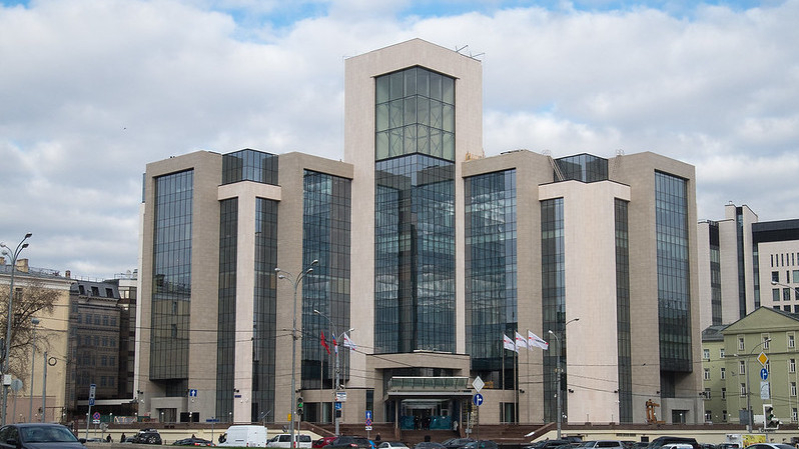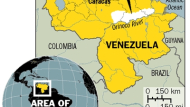Company – On record
This profile is no longer actively maintained, with the information now possibly out of dateBankTrack

Company – On record
This profile is no longer actively maintained, with the information now possibly out of dateBankTrack
Why this profile?
As climate scientist Svitlana Krakovska said, the parallels between the war in Ukraine and climate change are evident: both have their roots in fossil fuels. Lukoil is among the biggest contributors to greenhouse gas emissions in the world, and as one of Russia’s largest taxpayers, its profits help fuel the war.
What must happen
The ability of Russia to finance the war in Ukraine is highly dependent on the fossil fuel sector, which for decades has enjoyed the financial support of foreign investors. Therefore, banks and other financial institutions should immediately divest from and sever ties with Russian fossil fuels majors, including Lukoil.
| Sectors | Oil and Gas Extraction |
| Headquarters |
|
| Ownership |
listed on London Stock Exchange & Moscow Exchange
Lukoil is owned by private shareholders. The biggest shareholder is its founder Vagit Alekperov, who holds a 28.3% stake. See more information on the largest shareholders here. |
| Subsidiaries |
|
| Website | http://www.lukoil.com |
Lukoil is the second-largest oil producer in Russia and the largest country’s privately-owned company. Lukoil accounts for around 2% of global oil production and 1% of the world's known hydrocarbon reserves. The company engages in the exploration and production of crude oil and gas, in the refining, marketing and distribution of crude oil, refined petroleum products and chemical products. In 2022 Lukoil’s revenue amounted to US$ 125.1 billion, and in 2020 the company paid more than US$ 5.6 billion in taxes to the Kremlin.
Impact on human rights and communities
Impact on Indigenous sub-Arctic communities Lukoil has a monopoly in the Izhma district of Komi, located on the banks of Pechora River and mostly inhabited by the Indigenous Komi people. Over the years, this Indigenous group’s traditional lifestyle and livelihood has been threatened by Lukoil’s polluting activities, which have led to the poisoning of reindeer, cows and fish.
Local people interviewed by the Barents Observer after an oil spill in May 2021 describe the crisis this pollution has caused for local agriculture, including the death of cattle many relied on for milk and the poisoning of the soil. Local communities face food insecurity, loss of their culture and traditions as well as health issues related to the numerous oil spills that have occurred over the years.
Health impacts from toxic emissions: Karachaganak field The Karachaganak Oil and Gas Condensate field in Kazakhstan is operated by Karachaganak Petroleum Operating (KPO), a joint venture between KazMunaiGaz, Eni, BG Group, Chevron Corporation, and Lukoil. The field is located only 5km from the village of Berezovka, whose inhabitants, exposed to toxic emissions from the project, have been asking for years to be relocated to a safer place.
An independent report published by the NGO Crude Accountability revealed that a number of health issues, including memory loss, vision loss, muscular-skeleton problems and headaches were connected to the emissions from the project and that the local population is chronically ill as a result of its exposure to toxic chemicals.
The Berezovka inhabitants were relocated only after a mass child poisoning. In November 2014, children suffered convulsions and loss of consciousness during school hours. According to a local NGO, children fell ill because of the poisonous emission of the Karachaganak project. A few years later some of those children were diagnosed with toxic encephalopathy, a brain disease caused by chemical poisoning.
Impact on climate
Lukoil figures in the top 30 companies responsible for nearly half of the energy sector’s total methane emissions. According to its own Sustainability Report for 2021 (page 43) its emissions from exploration and production have grown to 10,836 million tonnes CO2e in 2021 from 10,267 million tonnes in 2017.
Lukoil committed to eliminate its routine flaring of APG (Associated Petroleum Gas) by 2030. Nevertheless, over the last four years, Lukoil’s self-reported total utilisation rate of flaring has been over 97% and in 2021 it even registered an increase (Sustainability Report pages 51, 57 and 149). Furthemore, Lukoil is leading efforts by Russian energy companies to lobby for the government cap on flaring associated gas to be raised.
A Climate Action 100+ assessment of Lukoil in March 2022 found that the company meets none of the criteria in many areas, including having no goal to reach net-zero emissions by 2050 or having a decarbonisation strategy, while only partially meeting criteria for medium-term greenhouse gas emissions reduction, climate policy engagement and governance and TFCD Disclosure.
The World Benchmarking Alliance states that “the company has made almost no progress in reducing its emissions intensity over the past 5 years and has no substantial climate strategy or emissions reduction targets that could drive alignment with the 1.5°C pathway. As such, Lukoil’s business model is unlikely to succeed in a low-carbon transition.”
Impact on nature and environment
Over the decades Lukoil has been responsible for a number of oil spills in Komi and the Nenets Autonomous District in northern Russia, the most recent in May 2021. As a consequence of this latter oil spill, a state of emergency was declared in three districts of the Komi region. Around nine tons of oil spilled into the Kolva, Usa and Pechora rivers, travelling some 450 km and reaching many villages and settlements. The spill has resulted in a criminal investigation. Although Lukoil argues that it completed cleaning-up operations in July 2021, environmentalists say that the contamination is bigger than Lukoil has stated and has not yet been fully addressed.
Recent bank finance to Lukoil includes:
- In October 2021, Lukoil completed raising US$ 2.3 billion of new financing from international investors in two tranches of Eurobonds. 80% of investors reported no affiliation with Russia. The bonds were underwritten by Citi, JP Morgan and Russia's Gazprombank;
- In May 2020 Lukoil issued US$ 1.5 billion in Eurobonds with a 10-year maturity. The notes were underwritten by Citi, Société Génerale and Gazprombank;
- In April 2018 Lukoil raised a US$ 600 million loan with a 10-year maturity. The loan was provided by ING Bank, UniCredit Bank and Deutsche Bank.
More information about investors in Lukoil can be found here.
Applicable norms and standards
Lukoil has also adopted its own corporate social responsibility policies, including i) a social code, ii) a sustainability policy, iii) a human rights policy, iv) a code of business conduct and ethics, and v) an anti-corruption policy.

